How Old Is Too Old To Be President?
There’s more to the presidential age debate than numbers.
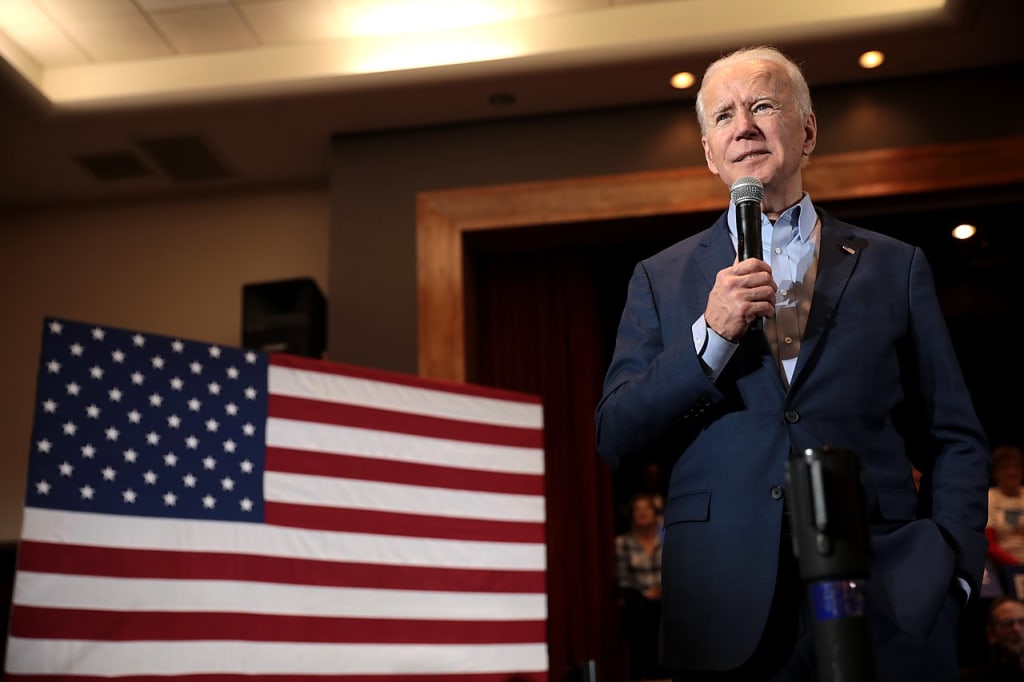
Like most people, my social group is generationally mixed.
Many, even the oldest among them, share concerns over Biden’s age (though not over Trump’s, indicating that the conservative line of attack on the president is having the desired effect). When pressed further, though, there is no clear consensus on what the ideal age to be president should be.
My boomer friends, perhaps more aware than most of the ravages that time can bring, are surprisingly the most virulently opposed to a president in their eighties.
Conversely, the millennials among them seem somewhat more open to a leader of Biden’s age but heavily caveat that opinion with an anyone-but-Trump clause.
Left in the middle are those of my era — Generation X — who will play an outsized role in this next election by virtue of having finally reached the demographic numbers to challenge the dominance of the baby boom generation, achieving near-parity according to the Pew Research Center (to be fair, millennials are more numerous than either group but vote in fewer numbers, making them a reduced force come election time).
Population numbers combined with an effective campaign focused on Joe Biden’s age make for a potent argument against the president seeking another term.
But will it really matter?
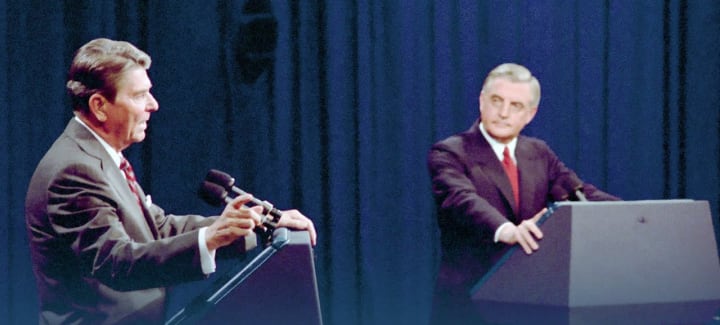
How old is too old?
Questions of age and mental fitness in American politics are nothing new.
Strom Thurmond stepped down as Senator for South Carolina only in January 2003, one month after celebrating his 100th birthday while in office. In his later years, Senator Thurmond was widely regarded to be non compos mentis.
Biden isn’t even the first president to be questioned over whether his age was disqualifying.
Ronald Reagan was sixteen days shy of his 70th birthday when he took the oath of office in 1981. Relatively youthful by modern standards, Reagan had to contend with questions of his mental acuity from the 1980 election through to his re-election campaign four years later.
Speculation around Reagan’s cognitive capacity reached new heights in 1984 after a poor performance during the first presidential debate against 56-year-old Democratic candidate Walter Mondale. When directly challenged by political correspondent Henry Trewhitt on whether, as the (then) oldest President in history during the second debate, Reagan was still able to rise to the challenges of the office, he responded:
“I want you to know that also I will not make age an issue of this campaign. I am not going to exploit, for political purposes, my opponent’s youth and inexperience.”
That single rehearsed quip likely sealed his 1984 re-election win but, by the end of his second term, members of congress, White House staff, and even his own family were privately concerned he was showing signs from Alzheimer’s Disease during his second term. He was formally diagnosed with the condition in 1994.
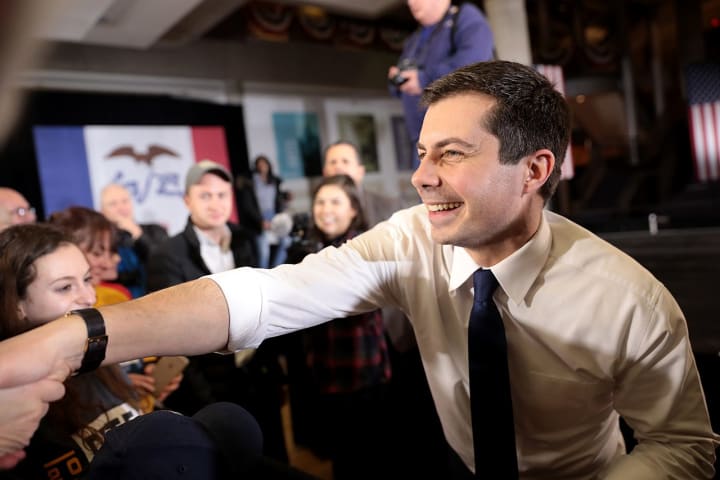
How young is too young?
The examples of Thurmond and Reagan aside, American politics has often been just as focused on whether a candidate is too young to hold the highest office.
It was a barrier for Pete Buttigieg during the Democratic president primaries in 2020, overshadowing his many achievements (he was a former naval officer, and Oxford Rhodes Scholar), his limited executive experience (his highest office was mayor of South Bend, Indiana, population 103,453) and his personal life. Voters were less hesitant to elect the first openly gay president than they were about electing the first millennial one.
Aware of this, Buttigieg often repeated two lines of rebuttal against this criticism.
He pointed to democracies around the world open to electing millennial leaders. Age hadn’t proven a barrier for voters in France (Emmanuel Macron, president at 39), New Zealand (Jacinda Ardern, prime minister at 37), or Sweden (Sanna Marin, prime minister at 34).
Nor had America always had a problem with youth, he told Frank Bruni of the New York Times.
“This country was founded by 20-somethings,” he added, referring to the fact that Aaron Burr, Alexander Hamilton and James Madison, for example, were in their 20s on July 4, 1776. Thomas Jefferson was 33. John Hancock was 39.”
In the end, the age factor was too high a hurdle for Buttigieg, despite showing early promise. By early February 2020, he had pulling into the lead in early primary states. In Iowa, the youngest candidate in the field defeating the oldest, Bernie Sanders, by just 0.1% of the vote. In a rematch a week later, Buttigieg came in second to Sanders in another close race. By the end of the month, Buttigieg’s vote was reduced to single digits in early voting states, and he dropped out after a poor showing in South Carolina, swinging his support to Joe Biden.
Does it matter?
The argument about age — too young, too old — shouldn’t come down to the individual. It needs to be about two things.
One argument — the one used against Biden, Feinstein, and McConnell and, increasingly, against Trump — is of capability to perform their duties.
The other — the one proffered by Mitt Romney — is whether being of a certain age is an impairment to understand, and therefore legislating, the challenges unique to the modern age. Climate change, certainly, but also housing inequality and the disproportionate power exercised by tech billionaires.
Trump has clearly indicated that he will continue to the seek the presidency, even if criminally convicted. If he cannot be deterred by that, he will hardly be shaken by age.
Is Romney right that both Biden and Trump should stand aside because of their age? For the record, I don’t believe that either men should be disqualified because of their age alone. Whatever you think of their politics, both retain a vitality that belie their years. As does the 76-year-old Romney himself. Or the 74-year-old Elizabeth Warren, for that matter. This is more obvious with Trump, though also true in Biden. His style is just more mild-mannered. It always was. Both seem as in tune to the desires and needs of their bases.
Biden skips a beat or a (literal) step here and there but remains as sharp as ever when it comes to policy judgment and negotiations. Trump is a man of many deep flaws, but they are ones matters of ethics, not epochs. He is far more likely to die in prison than in office.
The chickens have come home to roost for Republicans recently, with the focus on Biden’s stumbles bringing greater emphasis on Trump’s. In recent days, comments that a second Biden term will lead to World War II, and that he had defeated President Barrack Obama in 2016.
Humorous as both Biden and Trump’s fumbles can be, they are more likely simple slips of the tongue than any indication of a deeper issue.
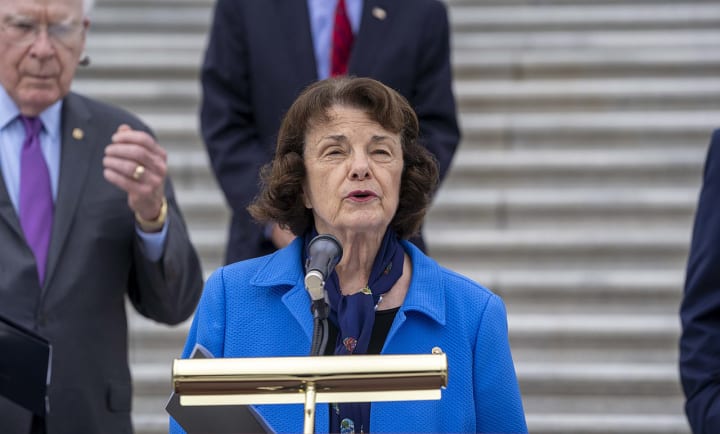
The real concerns are Mitch McConnell and Diane Feinstein. Unambiguously, they need to go now. As much for their own sake, as for that of America. History will not look kindly on Feinstein, in particular. Though the nation’s ire should be directed at the advisors who should be urging her to stand aside and enjoy a deserved retirement after a lifetime of exemplary service. Instead, they play her like a puppet. One suspects this is more about hopes of hitching their wagons to Feinstein’s anointed successor than any allegiance to Democratic values.
There is, of course, a straightforward solution, though it’s far from simple.
The Constitution specifies a minimum age requirement of 35, but not an upper one. This was a fair omission in 1776, when 35 was also the average life expectancy of a U.S. citizen. This was not an issue the founding fathers could have foreseen.
Another requirement could be for a mental competency test to be applied to politicians over a certain age, an idea floated by Republican candidate Nikki Haley for anyone over 75. Though widely mocked for it, the idea holds merit. After all, there are no shortage of roles — FBI agents, medical doctors, long-haul drivers — that face regular drug and alcohol testing to ensure the person given an essential task is physical and mentally able to perform it.
Provided the test is more rigorous than “person, woman, man, camera, TV”, it will all work out just fine.



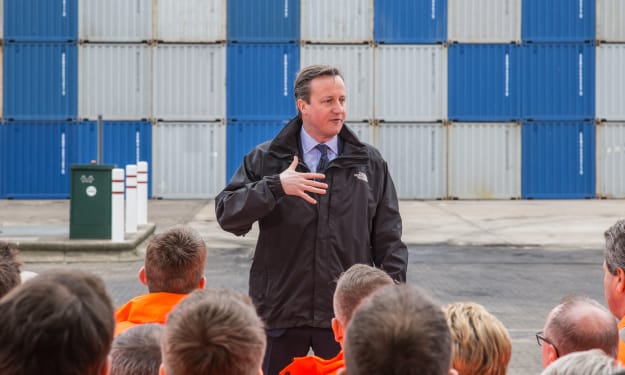


Comments
There are no comments for this story
Be the first to respond and start the conversation.